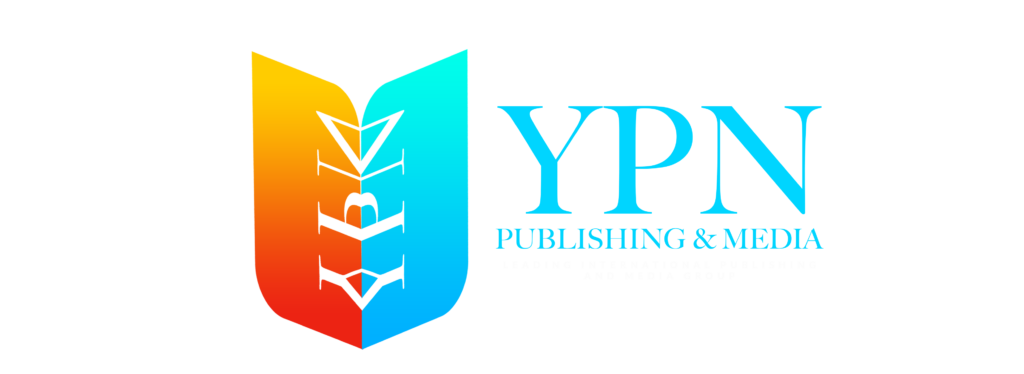A storm is brewing in the publishing industry, and at the center of it is a contentious new development; artificial intelligence’s (AI) encroachment into the world of books. Australian writers, literary agents, and industry leaders are pushing back after Black Inc Books, a respected Melbourne-based publisher, asked its authors to sign agreements allowing their works to be used for AI training, testing, and deployment.
This move has ignited outrage across the literary world, with critics arguing that authors are being forced into an AI-driven future without clear guidelines, protections, or fair compensation. The situation has raised broader concerns about intellectual property rights, transparency, and the ethical implications of allowing AI systems to mine human creativity for profit.
AI Contracts: A New Frontier or a Literary Death Warrant?
At the heart of the controversy is Black Inc’s contract addendum, which grants the publisher sweeping rights to use, adapt, and exploit an author’s work in developing machine learning and AI-driven systems.
The publisher is offering a 50/50 revenue split on any profits generated through AI licensing, but many writers see this as a deeply flawed deal that undervalues their work and opens the door for unchecked AI exploitation.
“This feels like signing our own death warrant,” said Laura Jean McKay, an award-winning author. “I was very concerned that there was absolutely no prior discussion. This is a highly unregulated space, and the Australian government still has no clear policies on how AI should be governed in publishing.”
Adding to the concern is the urgency of Black Inc’s request. Writers were reportedly given just a few days to review and sign the agreement, which many see as a pressure tactic to push them into compliance without proper legal review.
Industry Leaders Condemn Black Inc’s AI Agreement
The backlash against Black Inc’s AI licensing deal has been swift and severe, with industry experts warning that the rushed, opaque nature of the contract is both exploitative and reckless.
Lyn Tranter, a veteran literary agent, expressed shock at the publisher’s approach.
“It’s a serious matter,” she stated. “AI was not part of the original publishing agreements, so introducing it now requires careful consideration. Rushing authors into signing such agreements is highly irresponsible.”
The Australian Society of Authors (ASA) also weighed in, calling the move “outrageous” and raising concerns about the lack of transparency in Black Inc’s AI partnerships.
“What is the rush?” asked ASA’s chief executive, Lucy Hayward. “We don’t know which AI companies Black Inc is working with, what terms they’re negotiating, or how authors will be protected. Asking for blanket permission for all future licensing; especially under time pressure is unnecessary and unfair.”
Hayward also pointed out that the 50/50 revenue split is inadequate, emphasizing that authors should receive at least 75% of AI licensing revenue. She cited the US Authors Guild’s recommendation that publishers should take no more than 25%, as the value of AI training lies primarily in the author’s original expression, creativity, and intellectual property.
A Crisis of Ethics: Should Publishers Be Making AI Deals?
This controversy has sparked a deeper conversation about the role of publishers in an AI-driven future. Should publishing houses be brokering deals with AI companies at all? Or should their priority remain in championing human creativity and safeguarding the rights of the writers they represent?
Melbourne literary agent Jenny Darling believes publishers are losing sight of their core mission.
“Publishers are in the business of publishing books,” Darling argued. “Why are they entering agreements with AI companies? Is their business not big enough? Have they forgotten how to make money by publishing books?”
Her concerns are shared by many in the industry, who fear that publishers view AI as a shortcut to profitability at the expense of authors. By licensing vast amounts of text to AI companies, publishers could devalue the very foundation of literature, making it easier for machines to replicate human storytelling and potentially displace authors altogether.
Authors Resist AI’s Expansion into Publishing
Despite pressure from Black Inc, many writers have refused to sign the agreement, demanding more information and greater transparency before making any commitments.
Journalist Hamish McDonald, whose second book with Black Inc is set to release soon, described the situation as “out of the blue” and confirmed that he would not sign anything without further clarity.
“They want us to all sign by tomorrow,” he said. “I’m asking Black Inc for more information. I won’t be signing anything yet.”
McKay echoed similar concerns, arguing that the vagueness of the agreement signals that even Black Inc doesn’t fully understand what they are getting into.
“This is uncharted territory,” she said. “AI is evolving in an unregulated, wild west climate, and trillion-dollar tech giants like Meta, Google, and Telegram are aggressively resisting oversight. We need to be extremely cautious.”
The Global Fight for AI Regulation in Publishing
The publishing industry is not alone in its struggle to regulate AI. Governments worldwide are grappling with how to protect intellectual property while accommodating technological advancements.
- Australia has so far only conducted an inquiry into AI’s role in education, with no clear framework for publishing rights.
- The UK recently concluded a 10-week consultation on copyright laws, exploring ways to protect authors from AI-driven exploitation.
- The United States is witnessing a growing legal battle between authors and AI companies, with high-profile lawsuits filed against platforms accused of using copyrighted works without permission.
The Implications of AI on the Publishing Ecosystem
The introduction of AI into publishing presents a paradigm shift with far-reaching consequences; not only for authors but for literary agents, publishers, and readers alike. While some view AI as a tool that could enhance creativity and streamline workflows, many fear that it poses an existential threat to human storytelling. The key concern is that once AI systems are trained on vast amounts of copyrighted text, they could generate books that mimic human writing styles, effectively reducing demand for original works.
This issue goes beyond royalties and revenue splits. At its core, it challenges the fundamental value of human creativity. If AI-generated books flood the market, readers may struggle to distinguish between works crafted by seasoned authors and those assembled by machine learning models. This dilution of creative expression could lead to a decline in literary quality, a devaluation of authentic voices, and a loss of cultural storytelling traditions.
In the long term, allowing AI unchecked access to literature could mean publishers prioritize machine-generated content over human authors, significantly reducing opportunities for emerging writers. If AI-written books become cheaper and faster to produce, publishers could cut costs by investing less in human writers, editors, and traditional publishing services.
The Growing Divide: AI’s Role in Traditional vs. Self-Publishing
The rise of AI in publishing also introduces a divide between traditional publishing houses and independent authors. Established publishers, seeking to maximize profits and compete in an evolving industry, may strike deals with AI companies to integrate machine learning into content creation, editing, and marketing. This could make it even harder for new authors to break into the industry, as AI-generated books could be optimized for engagement, trends, and commercial viability at an unprecedented scale.
On the other hand, self-published authors may find opportunities to use AI strategically, not to replace their work, but to enhance efficiency in writing, editing, and marketing. Many independent authors are already leveraging AI-driven tools for proofreading, cover design, and audience targeting, allowing them to compete with major publishing houses. However, the difference lies in control, while self-published authors can choose how AI supports their work, those in traditional publishing may find their intellectual property used in ways they never agreed to.
This growing divide highlights the need for strict AI regulations and ethical guidelines. Without them, AI could exacerbate inequalities in publishing, benefitting large corporations while marginalizing independent writers and small publishing houses.
How Governments and Legal Experts Are Responding
As the controversy intensifies, governments worldwide are under pressure to address AI’s impact on creative industries. The publishing sector urgently needs clear legal protections to ensure that authors maintain control over their work, receive fair compensation, and are not unknowingly contributing to AI systems that could one day replace them.
Several key policy considerations must be addressed:
- Intellectual Property Protection: Who owns the rights to content once it has been used in AI training? Should authors receive compensation each time their work is used to improve AI models?
- Licensing Transparency: If publishers enter agreements with AI companies, how much transparency should be required? Should authors be informed about where their work is being used and have the right to opt out?
- Revenue Distribution: What is a fair compensation structure for AI licensing? Should royalty models favor authors over publishers, given that the text being used originates from human writers?
- Ethical AI Development: Should governments impose strict guidelines on how AI companies acquire training data? Should AI developers be required to seek direct permission from creators before using their work?
In the United States, the Writers Guild of America (WGA) has already taken a strong stance against AI-generated content, advocating for legal protections that prevent studios from using AI to replace screenwriters. Similar discussions are unfolding in the UK, Canada, and the European Union, with policymakers evaluating how copyright laws should be adapted for the AI age.
The Future of Publishing in an AI-Driven World
The publishing industry stands at a crossroads. Will it embrace AI responsibly, using it as a tool to support human creativity, or will it allow profit-driven AI deals to erode the value of original storytelling?
Authors, literary agents, and industry advocates must remain vigilant and vocal, ensuring that publishers uphold ethical standards, respect intellectual property, and prioritize fair compensation for writers. AI is not inherently the enemy, but it must be integrated into publishing with caution, oversight, and a commitment to protecting human creativity.
For writers who value their craft, their intellectual property, and their legacy, this is not just a business decision, it’s a fight for the future of literature itself.
The Future of Publishing: What’s Next for Writers?
As the legal landscape remains uncertain, one thing is clear: authors are unwilling to let their work be absorbed into AI systems without a fight.
The controversy surrounding Black Inc’s AI deal is just the beginning of a larger battle over the future of creativity, intellectual property, and human storytelling.
Authors, publishers, and industry leaders must now ask difficult questions about where the industry is headed. Will AI be used to support and amplify human creativity? Or will it be wielded as a tool to replace authors and erode the value of original storytelling?
The decisions made today will shape the future of publishing, the livelihoods of writers, and the integrity of literature itself.
For more expert insights on AI’s impact on publishing, the future of books, and the protection of author rights, visit YPN Publishing and Media LLC.












